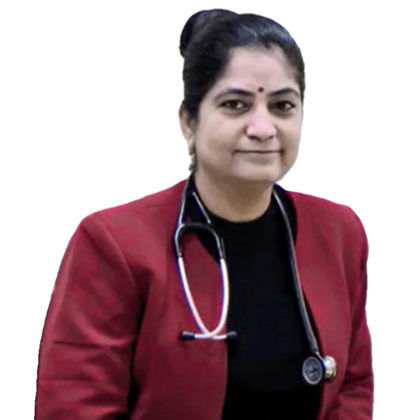Aspirin Uses for Heart Health
Discover the vital uses of low-dose aspirin for heart health, primarily in preventing heart attacks and strokes. Learn how it works, who can benefit, potential risks, and why professional medical guidance is essential before starting.

Written by Dr. Dhankecha Mayank Dineshbhai
Reviewed by Dr. Vasanthasree Nair MBBS
Last updated on 4th Aug, 2025

Introduction
Heart health is a major concern for many people, especially as they age. One common medication that doctors often recommend for heart health is aspirin. But what exactly is aspirin, and how does it help your heart? Let’s break it down in simple terms.
What Is Aspirin?
Aspirin is a widely used over-the-counter medicine that helps reduce pain, fever, and inflammation. However, it also has an important role in heart health because of its ability to prevent blood clots.
How Does Aspirin Help the Heart?
Aspirin works by thinning the blood, which means it helps prevent tiny blood cells called platelets from sticking together and forming clots. Blood clots can block arteries, leading to serious heart problems like:
Heart attacks (when blood flow to the heart is blocked)
Strokes (when blood flow to the brain is blocked)
For people at high risk of heart disease, a lowdose aspirin (usually 75100 mg per day) may be recommended by doctors to reduce these risks.
Who Should Take Aspirin for Heart Health?
Not everyone should take aspirin daily. Doctors usually recommend it for:
People who have already had a heart attack or stroke (to prevent another one)
Those with coronary artery disease (narrowed heart arteries)
Patients who have had a stent placed in their heart
Some adults (4070 years) at high risk of heart disease (but only if prescribed by a doctor)
Consult Top Specialists for Personalised Tips
Who Should Avoid Aspirin?
Aspirin is not safe for everyone. You should avoid daily aspirin if:
You have a bleeding disorder (like hemophilia)
You have stomach ulcers or a history of bleeding in the gut
You are allergic to aspirin
You are at low risk of heart disease (it may cause unnecessary side effects)
Always consult your doctor before starting aspirin therapy.
Possible Side Effects of Aspirin
While aspirin can be helpful, it may also cause some side effects, such as:
Stomach pain or heartburn
Increased risk of bleeding (nosebleeds, bruising easily)
Stomach ulcers or gastrointestinal bleeding (in rare cases)
To reduce stomach irritation, doctors may suggest taking aspirin with food or using enteric coated aspirin.
Lifestyle Tips for Better Heart Health
While aspirin can help, it’s not a substitute for a healthy lifestyle. Here are some ways to keep your heart strong:
Eat a hearthealthy diet – Include fruits, vegetables, whole grains, and lean proteins. Avoid too much salt, sugar, and fried foods.
Exercise regularly – Aim for at least 30 minutes of walking or moderate activity most days.
Quit smoking – Smoking damages blood vessels and increases heart disease risk.
Manage stress – Practice relaxation techniques like deep breathing, yoga, or meditation.
Control blood pressure and cholesterol – Get regular checkups and follow your doctor’s advice.
When to See a Doctor?
If you’re considering taking aspirin for heart health, always talk to your doctor first. They will assess your risk factors and decide if it’s right for you.
If you experience any of these symptoms while taking aspirin, seek medical help immediately:
Severe stomach pain
Black or bloody stools
Unusual bruising or bleeding
Weakness or slurred speech (signs of a stroke)
Final Thoughts
Aspirin can be a lifesaving medicine for people at high risk of heart disease, but it’s not for everyone. Always follow your doctor’s advice and combine it with a healthy lifestyle for the best results.
If you have concerns about your heart health, consult a specialist on Apollo 24|7 to get personalized advice. You can easily book an appointment or order tests from the comfort of your home.
Consult Top Specialists
Consult Top Specialists for Personalised Tips

Dr. Shakti
General Physician/ Internal Medicine Specialist
25 Years • MBBS, DNB, PGDHIVM, MRCP (UK)
Delhi
Apollo Hospitals Indraprastha, Delhi
(225+ Patients)

Dr. Hariprasath J
General Physician/ Internal Medicine Specialist
19 Years • MD (Gen Med), FCCP, Dip (Diabetology, UK)
Chennai
Apollo First Med Hospitals P H Road, Chennai
(175+ Patients)

Dr. Sandhya Chandel
General Physician/ Internal Medicine Specialist
16 Years • MBBS, MD (Int. Med.), IDCCM
Bilaspur
Apollo Hospitals Seepat Road, Bilaspur
(100+ Patients)

Dr. Smitha Nagaraj
General Physician/ Internal Medicine Specialist
15 Years • MBBS, Diploma in Family Medicine
Bengaluru
Apollo Medical Center, Marathahalli, Bengaluru

Dr. Chanchal Gera
General Physician/ Internal Medicine Specialist
18 Years • MBBS, MD (General Medicine), EULAR-C( Rheumatic Diseases)
Ludhiana
SPS Hospitals, Ludhiana, Ludhiana
Consult Top Specialists

Dr. Shakti
General Physician/ Internal Medicine Specialist
25 Years • MBBS, DNB, PGDHIVM, MRCP (UK)
Delhi
Apollo Hospitals Indraprastha, Delhi
(225+ Patients)

Dr. Hariprasath J
General Physician/ Internal Medicine Specialist
19 Years • MD (Gen Med), FCCP, Dip (Diabetology, UK)
Chennai
Apollo First Med Hospitals P H Road, Chennai
(175+ Patients)

Dr. Sandhya Chandel
General Physician/ Internal Medicine Specialist
16 Years • MBBS, MD (Int. Med.), IDCCM
Bilaspur
Apollo Hospitals Seepat Road, Bilaspur
(100+ Patients)

Dr. Smitha Nagaraj
General Physician/ Internal Medicine Specialist
15 Years • MBBS, Diploma in Family Medicine
Bengaluru
Apollo Medical Center, Marathahalli, Bengaluru

Dr. Chanchal Gera
General Physician/ Internal Medicine Specialist
18 Years • MBBS, MD (General Medicine), EULAR-C( Rheumatic Diseases)
Ludhiana
SPS Hospitals, Ludhiana, Ludhiana




